Introduction
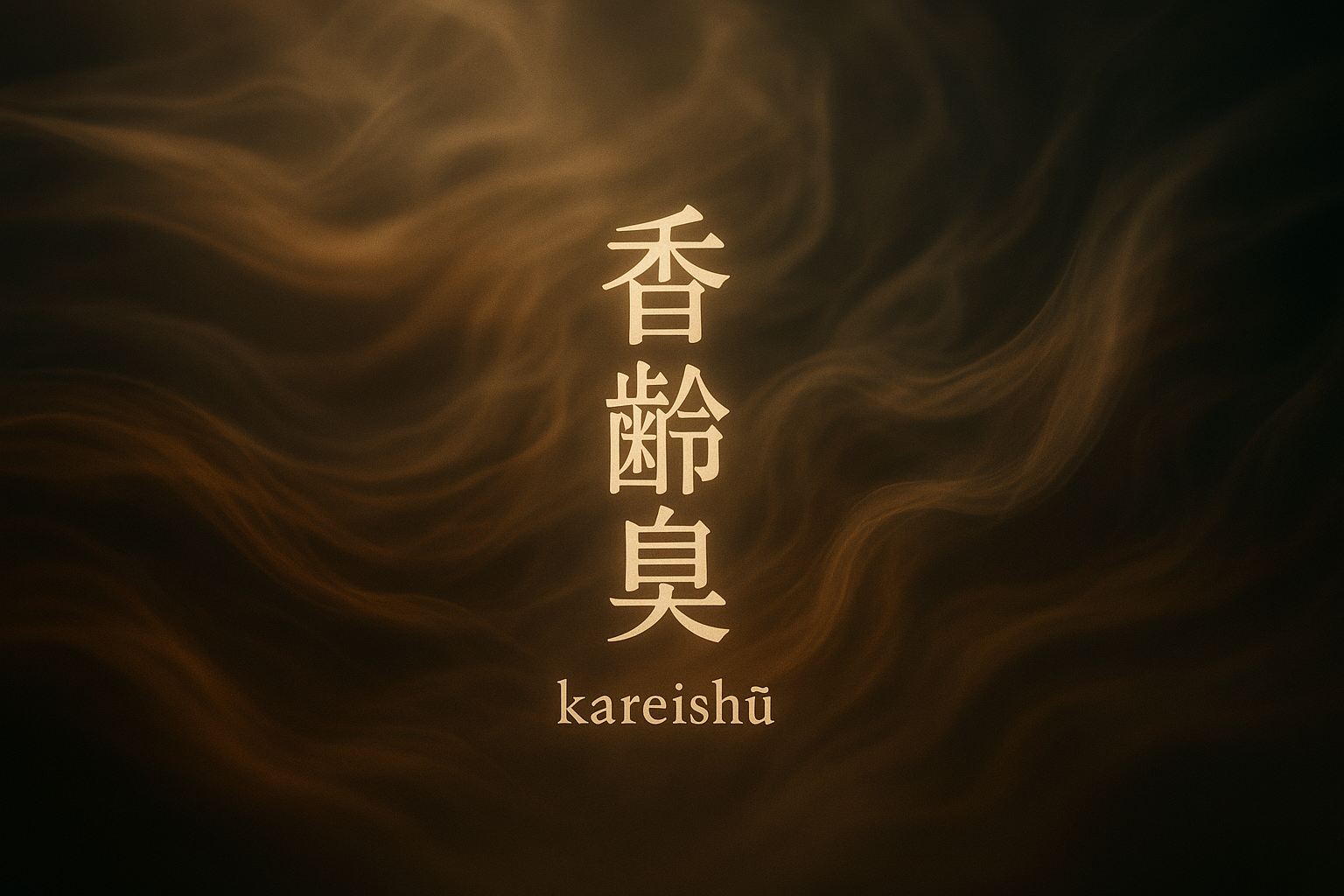
Most people have noticed it at some point — a distinct scent sometimes associated with older people. Often called “old person smell”, it is better described as aging odor. While the term can sound unkind, the science behind it is fascinating. In Japan, it is even given a name: kareishū, meaning “the smell of gaining years.”
This article explores why our bodies smell different as we age, clears up myths, and shares practical ways to manage it. Most importantly, it shows that aging odor is natural and not a reflection of poor hygiene.
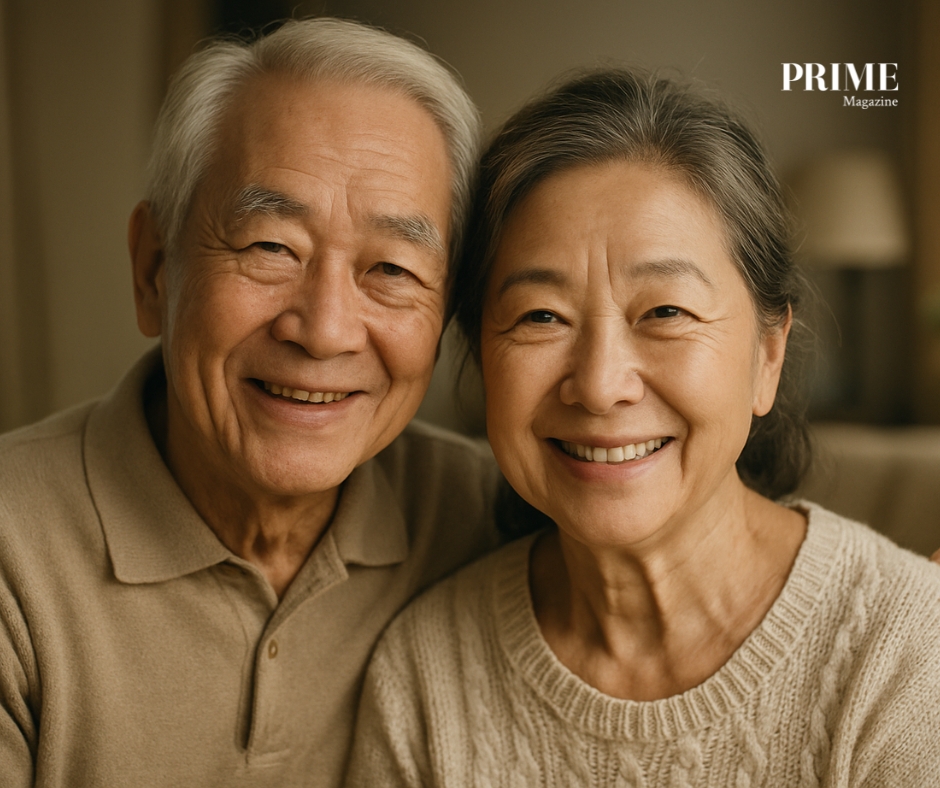
The Science of Aging Odor
Our scent changes at different stages of life. Babies often have a sweet aroma. Teenagers may smell stronger because of hormones. Adults over 40 develop a unique odor linked to skin chemistry.
The key compound responsible is 2-nonenal, a by-product of fatty acids in the skin. As we age, skin oils oxidize more easily. This process, called lipid peroxidation, creates 2-nonenal, which carries a grassy, musty scent. Scientists first identified this compound in Japan, and it is now considered a hallmark of aging odor.
Several factors contribute to this:
-
Oxidative stress: Fewer antioxidants in the body make it harder to prevent fatty acids from oxidizing.
-
Slower skin renewal: Older skin takes longer to shed and renew, so odor compounds stay longer.
-
Hormonal changes: Menopause and reduced sweat production change how odors form.
-
Skin microbiome shifts: The bacteria on skin change with age, affecting odor.
Together, these changes create a new scent that often becomes noticeable from the 60s onward. It is a natural process, not caused by a lack of cleanliness.
Myths vs. Facts
Myth 1: Aging odor comes from poor hygiene.
Fact: Aging odor develops even in people who bathe regularly. Dermatologist Dr. Eileen Tan explains: “The smell-inducing 2-nonenal is a by-product of omega-7 fatty acids after oxidation. Age-related body odor likely has nothing to do with personal hygiene.”
Myth 2: Only older adults have a special smell.
Fact: Every age has a scent profile. Teenagers smell different due to sweat and hormones. Middle-aged adults may smell faintly of “stale beer” from other compounds. Older people’s odor is just another stage of life.
Myth 3: Aging odor signals illness.
Fact: The mild musty smell linked to 2-nonenal is not a disease sign. However, sudden or strong odors can point to health issues. A fruity scent may suggest diabetes, while an ammonia-like smell can indicate kidney or liver problems. Infections can also change body odor.
Social and Health Impacts
Although natural, aging odor can affect self-confidence. Some older adults worry about smelling unpleasant and may avoid social contact. Careless remarks or jokes can hurt and reinforce ageist stereotypes.
On the other hand, noticing a sudden change in odor can be useful. Families or caregivers may pick up on infections or health conditions early. In this way, body scent can sometimes serve as a health signal.
Studies also show that people often rate the scent of older adults as less intense than that of younger people. However, once told the smell comes from someone older, they judge it more negatively. This shows that stigma often comes from perception, not the actual smell.
Cultural Perspectives in Asia
In Singapore, many people describe the scent of aging as a mix of mustiness and the medicinal oils often used by older adults. Families usually respond with care — offering fresh clothes, gentle products, and good ventilation.
Japan openly acknowledges aging odor with the word kareishū. Companies there market body washes, soaps, and laundry products to reduce it. Many contain persimmon extract, which may neutralize odor compounds. Even if the evidence is limited, these products are popular and show how seriously the issue is taken.
In other Asian households, herbal baths with ginger, pandan leaves, or green tea are used to refresh the body. These traditions highlight the focus on dignity and care, rather than blame.
Practical Solutions and Tips
There are many ways to manage aging odor. These approaches support both comfort and confidence:
-
Gentle hygiene: Use a pH-balanced cleanser when bathing. On non-shower days, sponge baths help. Moisturize afterward to protect skin.
-
Oral care: Keep teeth, gums, and dentures clean to prevent odors.
-
Antioxidant-rich diet: Eat fruits, vegetables, green tea, and mushrooms. Shiitake and oyster mushrooms are especially valued for skin health.
-
Stay hydrated: Drinking enough water helps flush out waste and supports healthy skin.
-
Fresh fabrics: Wash clothes, sheets, and towels often. Sun mattresses and pillows to prevent mustiness.
-
Ventilation: Open windows or use purifiers to keep air fresh.
-
Light fragrance: A touch of cologne, perfume, or essential oils can mask mild odors. Citrus and floral notes work well.
-
Special products: Persimmon soaps or green tea washes may reduce odor and boost confidence.
-
Medical checks: If odor changes suddenly or becomes strong, see a doctor.
Expert Insight
Experts reassure older adults that aging odor is normal. Dr. Tan notes: “Older patients and their families are often relieved to learn there’s a scientific reason. It’s important not to feel embarrassed.”
Associate Professor Lim Tit Meng adds: “A diet rich in antioxidants and good hydration may help reduce the intensity of aging odor. What benefits your health often benefits your scent as well.”
In Japan, the discovery of 2-nonenal led to targeted skincare products. Meanwhile, Western experts like Dr. George Preti remind us that older people often smell less, not more, than younger ones — showing how much perception shapes reality.
Conclusion
So, why do older people smell? The answer lies in changes to skin chemistry, especially the rise of 2-nonenal. It is not about neglect or poor hygiene, but about biology and time.
By understanding the science, we replace stigma with compassion. Healthy habits — from diet and skincare to fresh environments — can reduce odor and boost confidence. And by talking about it openly and respectfully, we normalize a topic that touches every family.
Aging odor is not a flaw. It is a natural part of life, a reminder of the journey through the years. With the right care, it can stay a subtle note in the background — while the focus remains on the experiences, wisdom, and warmth of older people. PRIME


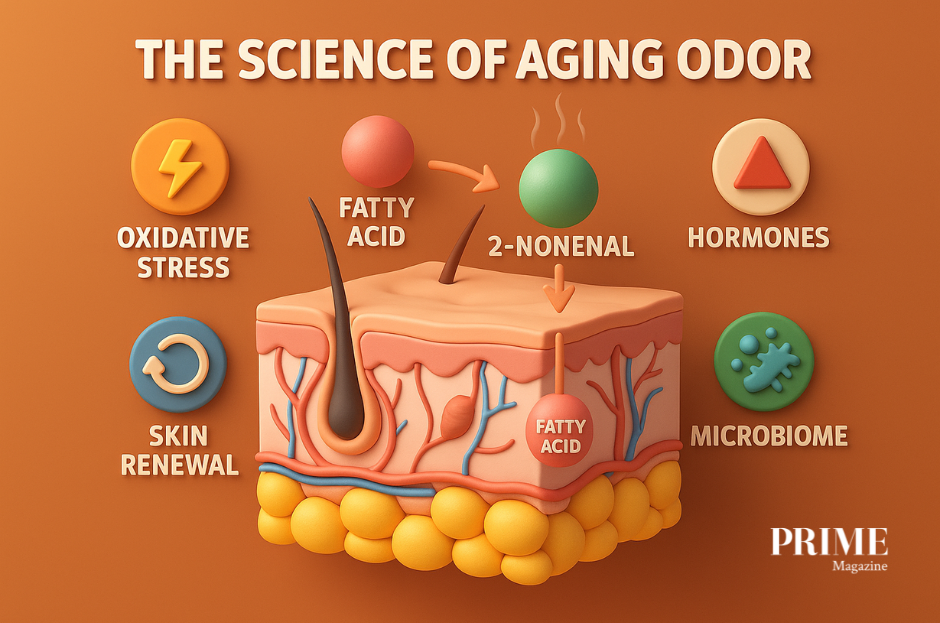
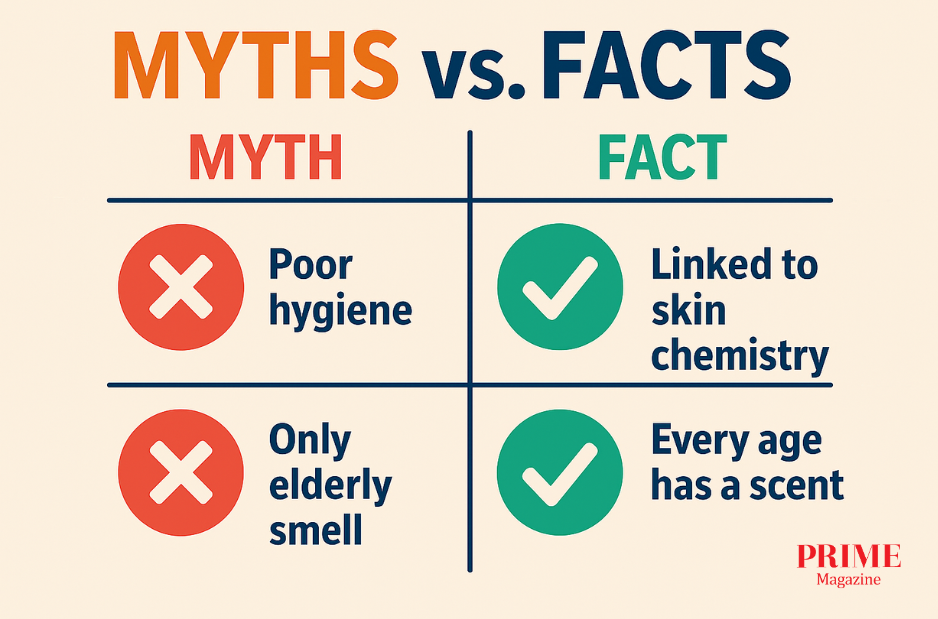
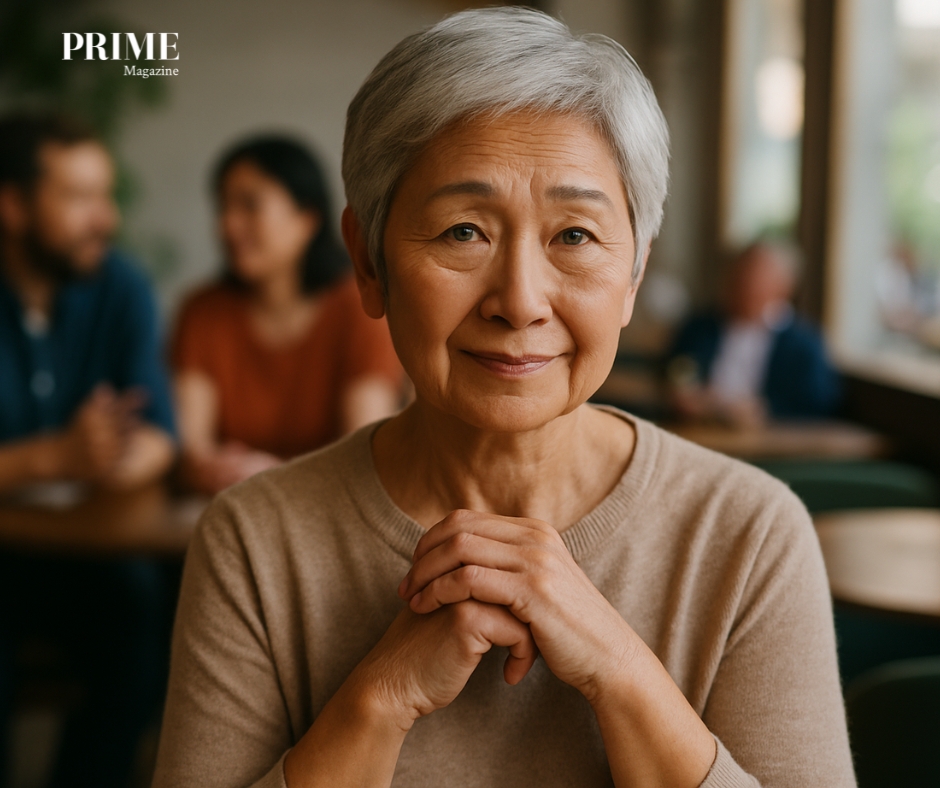
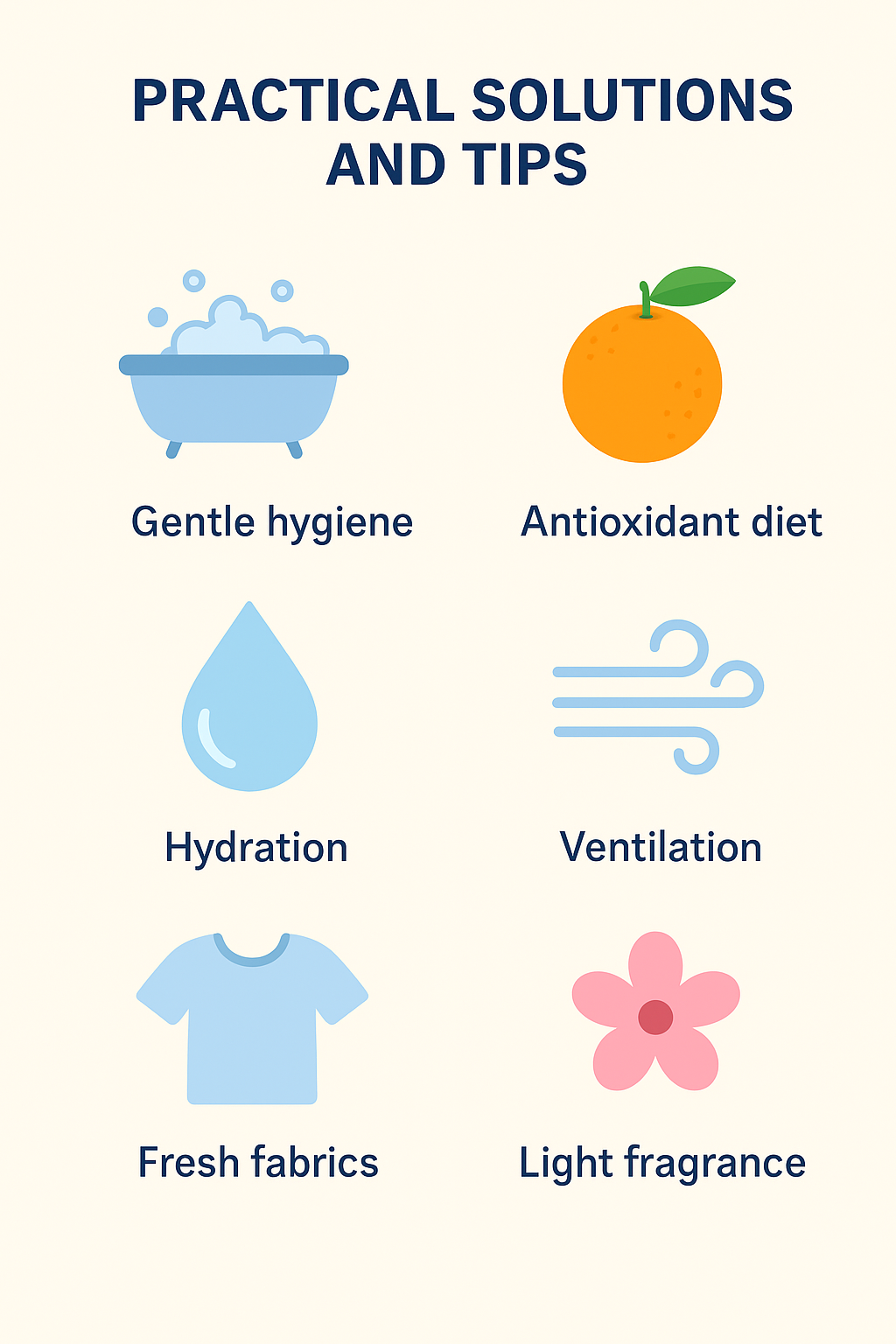
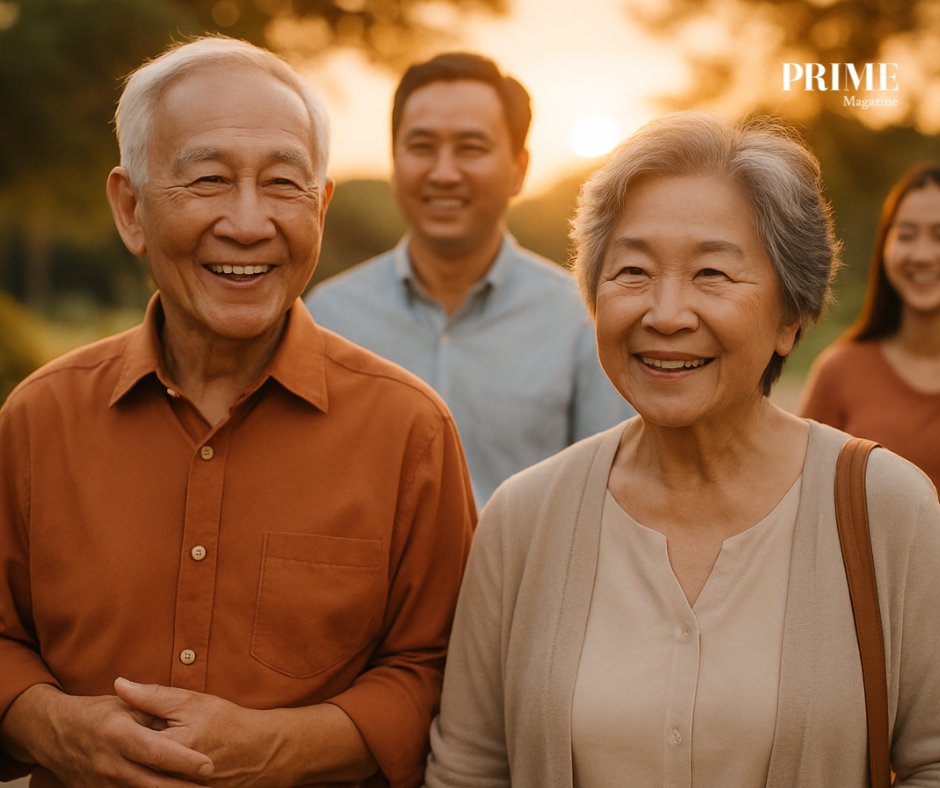










Leave A Comment